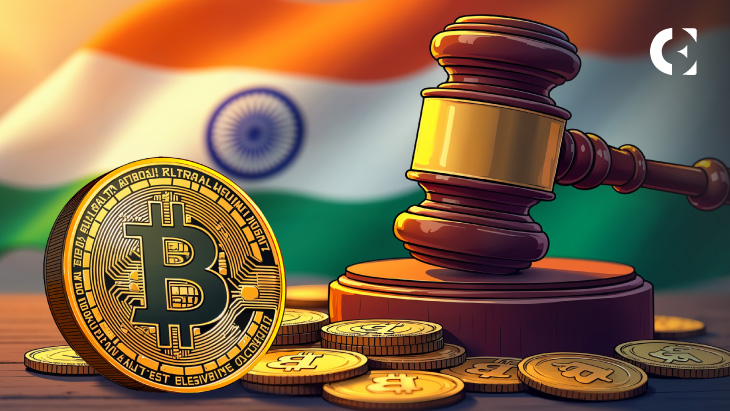- Supreme Court calls crypto ban unrealistic, urges regulatory action.
- Fraud case involving 2,091 BTC drives court scrutiny.
- Court compares Bitcoin trading to hawala, flags urgent oversight need.
On May 19, 2025, India’s Supreme Court questioned why the central government has yet to create clear rules for cryptocurrencies. Justices Surya Kant and N. Kotiswar Singh said banning digital assets would be like “shutting your eyes to the ground reality.” Instead, they urged regulatory action, not prohibition.
The bench said,
“We aren’t experts. Experts would examine it, but some steps to regulate it and have an eye on it are necessary.”
Supreme Court to India Gov: Regulate Crypto, Don’t Ignore Reality
The justices emphasized that the government must act with the help of domain experts to monitor the fast-evolving crypto market. They referred to a previous case where the Attorney General claimed regulation was impossible due to the international nature of crypto, which the court found inadequate.
The court highlighted the contradiction in India’s approach: taxing crypto at 30% plus 1% TDS (Tax Deducted at Source), all while lacking any formal oversight. The justices said this kind of taxation implies the government already recognizes crypto. And if the government treats crypto as a source of revenue, then it must also create rules to prevent its misuse.
Judicial Scrutiny Arises During Shailesh Bhatt BitConnect Fraud Case Bail Hearing
These pointed comments came during a bail plea hearing for Shailesh Babulal Bhatt, a Gujarat-based businessman accused in a multi-state crypto fraud. The case involved the alleged abduction of two BitConnect employees in 2018. Bhatt is accused of extorting 2,091 Bitcoins, 11,000 Litecoins, and ₹14.5 crore in cash from the victims to recover losses from his investment in the now-defunct platform.
The justices asked the government to explain delays in creating a legal framework, especially as courts face challenges handling crypto-related evidence. Justice Kant asked,
“Tomorrow, somebody will ask me, you please prove – what is the asset? How are we going to prove it?”
These questions reflect the lack of technical tools and legal clarity to process crypto crime cases.
Additional Solicitor General Aishwarya Bhati said she would seek instructions from the central government. The court directed the Central Bureau of Investigation (CBI) to complete its probe before the next hearing and submit an updated report by May 30, 2025.
Judges Flag Crypto-Hawala Risk, Demand Urgent Action
In a striking comparison, the bench compared unregulated Bitcoin trading to the hawala system—an informal and illegal money transfer method. This signals the court’s worry that crypto, in its current form, could threaten financial stability. The justices stressed that continuing without oversight creates space for money laundering, scams, and capital flight.
Justice Kant clarified that the larger issue of cryptocurrency policy will be handled separately, but the immediate focus must remain on Bhatt’s legal standing. The court said it was unclear whether he was a victim or a perpetrator.
The hearing concluded with a clear warning. The court said that ignoring crypto’s presence is no longer an option. It called for transparency, proper monitoring, and a regulatory roadmap without delay.
Disclaimer: The information presented in this article is for informational and educational purposes only. The article does not constitute financial advice or advice of any kind. Coin Edition is not responsible for any losses incurred as a result of the utilization of content, products, or services mentioned. Readers are advised to exercise caution before taking any action related to the company.







